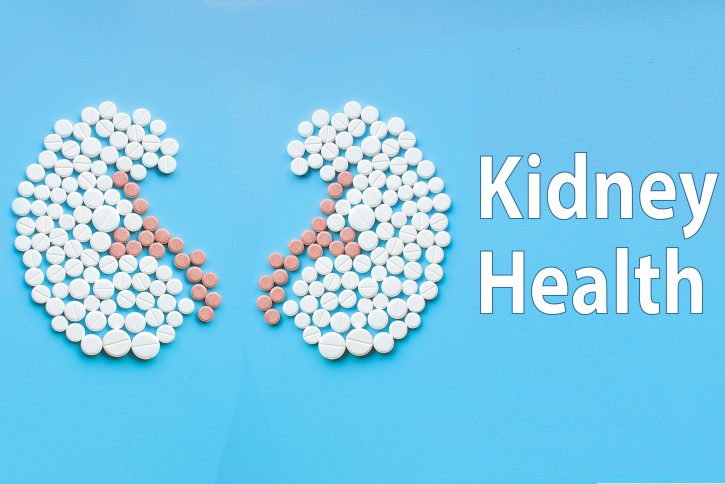
Article originally published July, 2021.
According to the National Kidney Foundation, one-third of adults in the United States are at risk of developing kidney disease. One of the dangers of kidney disease is that it often goes unnoticed until the disease has advanced to the point of needing dialysis or a transplant.
Your kidneys are vital to your body’s function – providing regulation for fluid levels and filtration of wastes and toxins. Once kidney disease develops, it can lead to additional complications, including: heart disease, high blood pressure, nerve damage and heart attack and stroke.
Kidney Disease Risk Factors
Knowing whether or not you are at risk for kidney disease is an important step in protecting your kidney health. Risk factors include:
- Diabetes (you or your family)
- High blood pressure (you or your family)
- Heart disease (you or your family)
- Family history of kidney failure or diabetes
- Obesity
- Age – most common with those 60 or older
- Low birth weight
- Extended use of NSAIDS, like ibuprofen or naproxen
- Lupus and other autoimmune disorders
- Chronic urinary tract infections
- Kidney stones

Symptoms of Kidney Disease
The early stages of kidney disease often avoids detection due to a lack of symptoms – in many cases, symptoms do not appear until the disease has advanced. Talk to your healthcare provider if you are experiencing:
- Fatigue or weakness
- Difficulty or pain when urinating
- Foamy urine
- Blood in urine (appear pink and dark)
- Increased thirst
- Frequent urination (especially at night)
- Puffy eyes
- Swelling in the face, hands, abdomen, ankles or feet
If You Have Kidney Disease
If you are at high risk of developing kidney disease or are experiencing symptoms, talk to your healthcare provider about getting tested for kidney disease. Three common tests that can check for indicators of kidney disease are:
- Blood pressure – high blood pressure may indicate damaged small blood vessels
- Protein in urine – protein in urine may indicate kidney damage or be an early sign of kidney disease
- Glomerular filtration rate (GFR) blood test – measures how well the kidneys are filtering the blood
If you have been diagnosed with kidney disease, there are things you can do to help protect your kidneys from further damage:
- Take steps to lower high blood pressure
- Monitor and manage your blood sugar levels
- Lower your sodium intake
- Avoid NSAIDs, like ibuprofen and naproxen
- Make sure you are eating an appropriate amount of protein
- Get an annual flu shot

Keeping Your Kidneys Healthy
Whether or not you have been diagnosed with kidney disease, there are many things you can do to help keep your kidneys healthy.
- Stay physically active
- Maintain a healthy weight
- Eat a balanced diet
- Avoid using tobacco or vaping
- Moderate alcohol consumption
- Drink an appropriate amount of water
- Schedule an annual wellness exam with your healthcare provider
- Monitor your cholesterol levels
- Know your personal and family medical history
If you have questions or are concerned about your kidney health, click here to contact one of our primary care providers.
Source: National Kidney Foundation